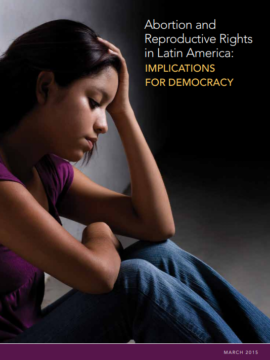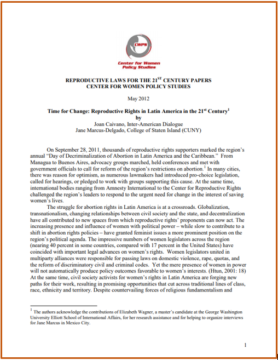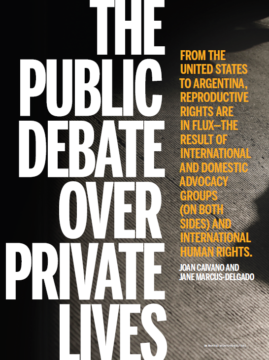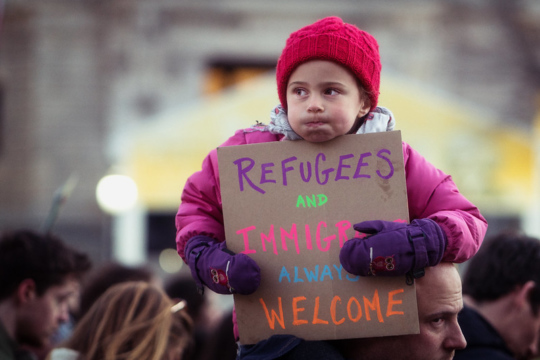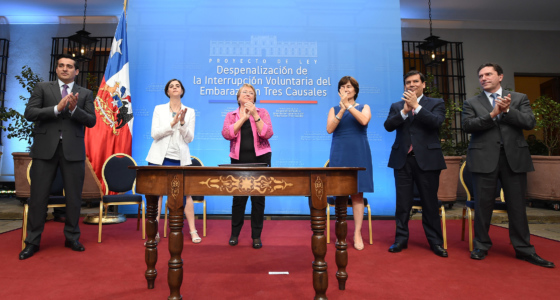
The Reproductive Rights Debate in Latin America
While the overall landscape for reproductive rights showed little change in 2014, there is evidence of glacier-like movement toward easing restrictions on abortion.
While the overall landscape for reproductive rights showed little change in 2014, there is evidence of glacier-like movement toward easing restrictions on abortion.
How are women faring in Latin America? Where has progress been made and how has that been achieved?
In Brazil, the possibility of pregnant women with Zika having access to abortion has not entered the public debate.
How do Latin America’s total abortion bans affect women’s health and human rights?
On December 6th, the Inter-American Dialogue hosted a half-day session on “Sexual & Reproductive Rights in Latin America & the Caribbean: Where Are We Now” in partnership with the Center for Reproductive Rights and the O’Neill Institute for National and Global Health Law.
On June 4, the Inter-American Dialogue, the Center for Reproductive Rights, and the International Planned Parenthood Federation co-sponsored an event titled “The Crisis of Democracy and Women’s Rights in the Americas.”
Latin American countries have some of the most restrictive reproductive health laws and policies in the world, particularly with regard to abortion. In part this stems from not recognizing reproductive freedom as a fundamental human right. However, imposing legal restrictions on abortion does not reduce the likelihood that women will seek this reproductive health service. Instead, harsh laws compel women to risk their lives and health by seeking out unsafe abortions.
In this report, Joan Caivano from the Inter-American Dialogue and Jane Marcus-Delgado from CUNY analyze the existing reproductive rights landscape in Latin America in the 21st Century.
In this article of Americas Quarterly, Joan Caivano and Jane Marcus-Delgado look at abortion access and reproductive rights in Latin American countries.
A brave whistleblower recently reported that women immigrants at an Immigration and Customs Enforcement (ICE) detention center have been subjected to gynecological procedures without their knowledge or informed consent. Unfortunately, for thousands of women and girls, these reported violations are just a sampling of the government’s illegal practices of aggression and neglect in its treatment of women seeking to immigrate to the United States.
A Latin America Advisor Q&A featuring viewpoints on the effects of the overturn of Roe vs. Wade on Latin America and the Caribbean.
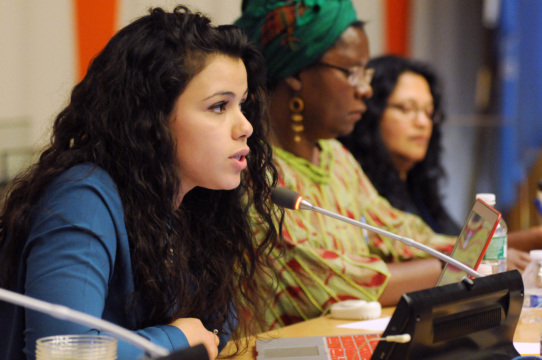
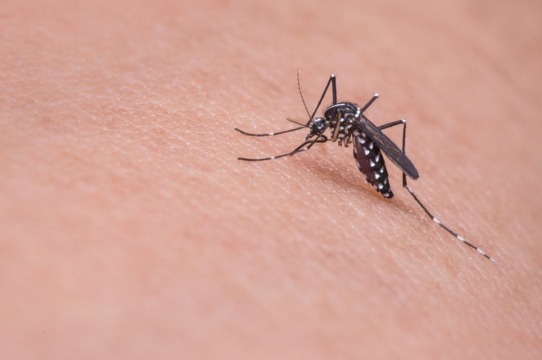

 Video
Video
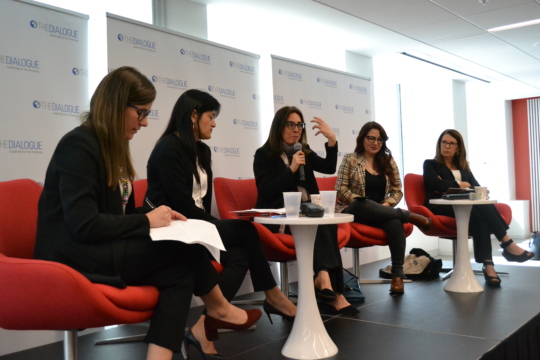 Video
Video
